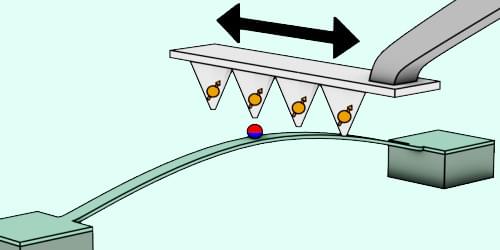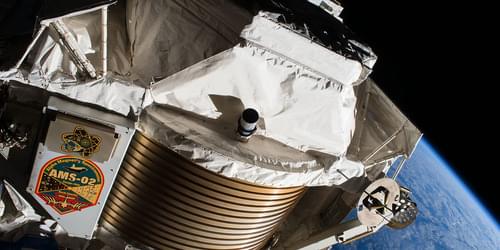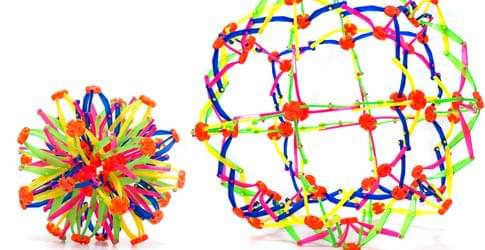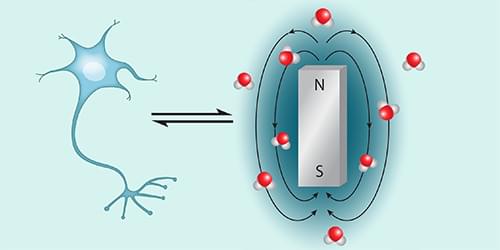What Matters in Transformers?
The official implementation of the paper ‘Demystifying the Compression of Mixture-of-Experts Through a Unified Framework’. — DaizeDong/Unified-MoE-Compression.



They were gradually replaced by AI.
A hot potato: CEOs, bosses, and the those who make the technology love to assure people that artificial intelligence isn’t going to replace everyone’s jobs; it will merely augment them – working alongside humans to make life easier. Yet we keep hearing stories like the one about a writer whose employer fired his 60-person team and replaced them with an AI.
A writer using the pseudonym Benjamin Miller told the BBC that his company wanted to use AI to cut costs in early 2023. He led a team of more than 60 writers and editors who published blog posts and articles to promote a tech company that packages and resells data.
The new workflow involved feeding headlines into an AI model that would generate an outline based on the title. The writing team would then create articles based on these ideas, rather than coming up with their own, with Miller editing the final pieces.
A fine of more than $20 billion could be waiting for the tech giant.

While solid-state spin qubits show promise as quantum information platforms, their qubit-to-qubit interactions extend over too short a distance to connect many of them together, posing a problem for complex computations. Now Frankie Fung and colleagues from Harvard University have devised a mechanical method—involving a vibrating nanobeam—to connect distant spin qubits, potentially overcoming this issue [1].
A popular solid-state spin qubit is the nitrogen-vacancy (NV) center, a single-atom defect in a diamond crystal. This system is attractive for quantum information applications, as it has both a light-sensitive electron spin state (which offers a knob for controlling the qubit) and a long-lived nuclear spin state (which acts as memory). But direct interactions between NV centers are limited to a few nanometers.
To lengthen the connections, Fung and his colleagues propose using a nanobeam fitted with a micromagnet as an intermediary between distant NV centers. The idea is then to place a line of NV centers along the length of a scanning-probe-microscope tip and move the tip over the micromagnet. When a particular NV center comes close to the micromagnet, the magnetic-field interaction should entangle the vibrational state of the nanobeam with the spin state of that NV center. This quantum information is then shared with the next NV center along the line.



A new technique combining magnetic resonance imaging and x-ray fluorescence can characterize, with single-neuron resolution, the presence of toxic forms of iron that might be associated with neurodegenerative diseases.
Iron plays a major role in life. Most obviously, it keeps us alive, helping to ferry oxygen around our bloodstreams. It is also essential in cellular energy production, in the immune-system response, and in brain function—where it helps catalyze the synthesis of dopamine and other neurotransmitters. Iron can, however, be a double-edged sword. An iron excess has been implicated in many ailments, including neurodegenerative conditions such as Alzheimer’s, multiple sclerosis, and Parkinson’s disease—where dopaminergic neurons (neurons that use iron to synthesize dopamine) degenerate. It is thought that the toxicity of iron depends on how it is stored: iron firmly bound within proteins such as ferritin may be less toxic than iron more loosely bound to low-affinity sites, where it is more able to participate in reactions that generate cell-damaging hydroxyl radicals [1].

A physicist investigating black holes has found that, in an expanding universe, Einstein’s equations require that the rate of the universe’s expansion at the event horizon of every black hole must be a constant, the same for all black holes. In turn this means that the only energy at the event horizon is dark energy, the so-called cosmological constant. The study is published on the arXiv preprint server.
“Otherwise,” said Nikodem Popławski, a Distinguished Lecturer at the University of New Haven, “the pressure of matter and curvature of spacetime would have to be infinite at a horizon, but that is unphysical.”
Black holes are a fascinating topic because they are about the simplest things in the universe: their only properties are mass, electric charge and angular momentum (spin). Yet their simplicity gives rise to a fantastical property—they have an event horizon at a critical distance from the black hole, a nonphysical surface around it, spherical in the simplest cases. Anything closer to the black hole, that is, inside the event horizon, can never escape the black hole.

Dark energy—a mysterious force pushing the universe apart at an ever-increasing rate—was discovered 26 years ago, and ever since, scientists have been searching for a new and exotic particle causing the expansion.
Pushing the boundaries of this search, University of California, Berkeley physicists have now built the most precise experiment yet to look for minor deviations from the accepted theory of gravity that could be evidence for such a particle, which theorists have dubbed a chameleon or symmetron. The results are published in the June 11, 2024, issue of Nature Physics.
The experiment, which combines an atom interferometer for precise gravity measurements with an optical lattice to hold the atoms in place, allowed the researchers to immobilize free-falling atoms for seconds instead of milliseconds to look for gravitational effects, besting the current most precise measurement by a factor of five.